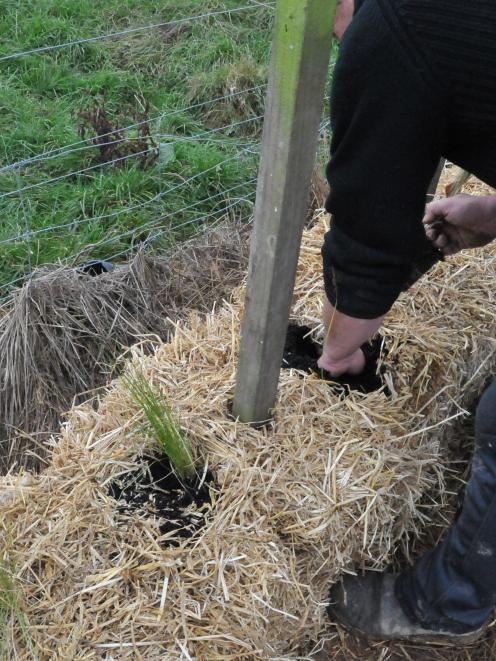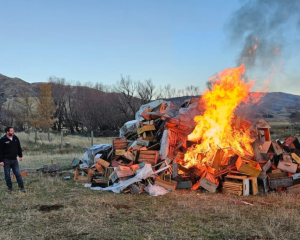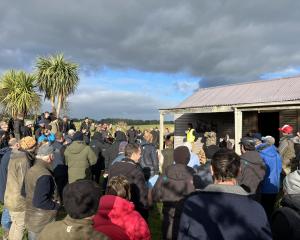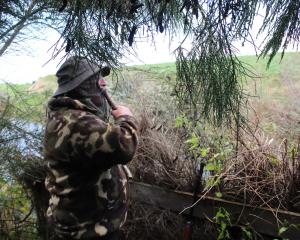
New Zealand Landcare Trust regional co-ordinator Craig Simpson, together with members of the Pomahaka Water Care Group, are trialling the project, which was established on a sheep and beef property and a dairy property two weeks ago.
Both farmers had pegged conventional straw bales at the bottom of gullies or swales in two paddocks, one of which had been planted in winter crop. Holes had been cut in the bales, which filled with potting mix and then red tussocks and Carex secta planted, Mr Simpson said.
Water flows towards the bales,which intercept the contaminants and nutrients, while the sediment and nitrates were delivered directly to the plant roots.
The bales are fenced off from stock.
As the bales decompose, the plants’ root systems will eventually grow into the ground and become established, while the straw turns into mulch, which will also mitigate sediment loss.
"We will end up with well-established plants with good root balls," he said.
The farmers will have small vegetation areas in place to help contamination movement mitigation.
"Our theory is we want to try simple things that people might be encouraged to do and which will have long-term benefits," Mr Simpson said.
It will ultimately improve quality of the water going into waterways.
As the trial only started recently, it was too early to analyse the water before and after the bales.
"Ideally, they are a long-term solution to filtering sediments and nutrients."













